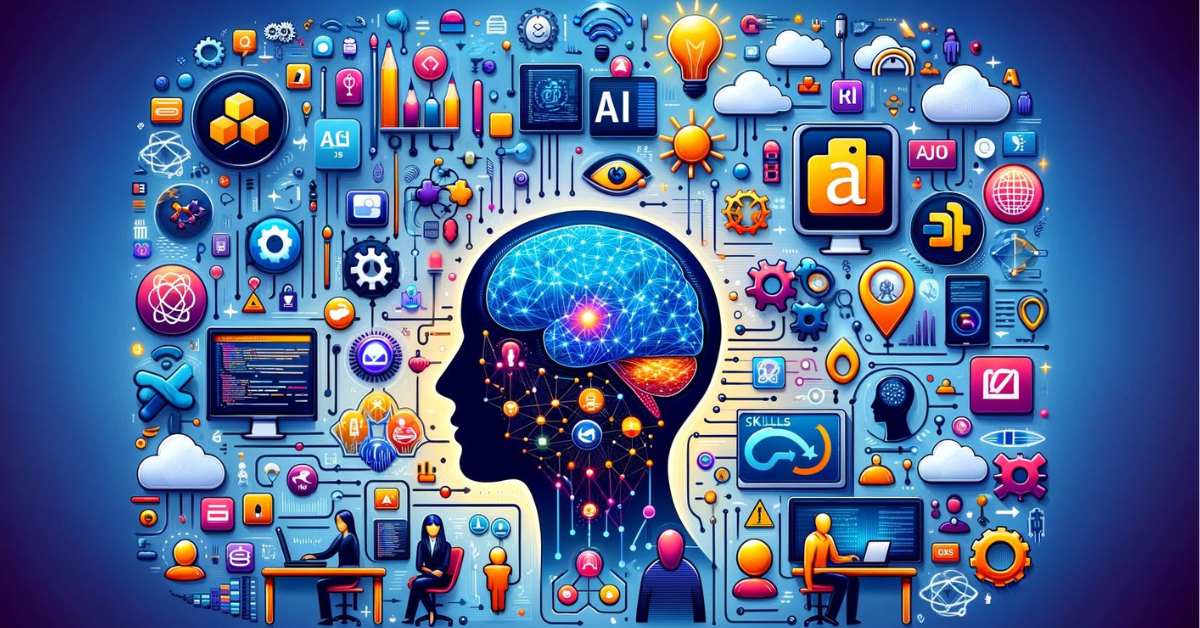The Artificial Intelligence (AI) job market is expanding at an unprecedented rate, driven by the increasing adoption of AI across various sectors. From tech giants to startups, the demand for AI skills is skyrocketing, offering a plethora of opportunities for those in the field.
Current landscape
The AI industry is not just about programming and data analysis anymore. It encompasses a wide range of roles, including AI ethics officer, AI project manager, and more. This diversity in job roles is a testament to AI’s integration into different aspects of business and society.
Machine learning engineers, data scientists, and research scientists are among the most sought-after positions. Companies are also on the lookout for professionals with expertise in natural language processing, robotics, and computer vision.
Skills and qualifications
In the burgeoning AI job market, the right mix of technical skills, qualifications, and soft skills can set candidates apart. Understanding the prerequisites for a career in AI is crucial for navigating this competitive landscape successfully.
Technical skills and knowledge
At the core of AI job requirements are strong technical skills. Proficiency in programming languages such as Python, R, and Java is fundamental. Knowledge of machine learning frameworks (e.g., TensorFlow, PyTorch) and understanding algorithms, neural networks, and statistical methods are essential.
Experience with data manipulation and analysis using SQL, pandas, or NumPy can also be crucial, depending on the role. Familiarity with cloud services like AWS, Google Cloud, or Azure, which offer AI and machine learning services, is increasingly important.
Qualifications and certifications
Formal education in computer science, mathematics, or a related field is often a baseline requirement. However, qualifications can range from bachelor’s and master’s degrees to PhDs for more research-focused roles.
Certifications provide a pathway to demonstrate expertise in specific areas. Examples include:
- IBM AI Engineering Professional Certificate (Coursera): Covers deep learning, machine learning, and data science.
- Google Cloud Professional Machine Learning Engineer: Demonstrates skills in designing, building, and productionizing ML models.
- Microsoft Certified: Azure AI Engineer Associate: Focuses on using Azure services to build AI solutions.
Specialized courses from platforms like Udacity, Coursera, and edX offer nanodegrees and professional certificates in AI and machine learning, blending industry-relevant projects with theoretical knowledge.
Soft skills
Beyond technical ability, soft skills play a pivotal role. Problem-solving skills enable professionals to tackle complex challenges in AI development and application. Critical thinking is necessary for evaluating models and interpreting data effectively. Communication skills are crucial for explaining complex AI concepts to non-experts and for collaborating across teams.
Creativity and innovation are valuable for devising novel solutions and applications of AI technology. Ethical reasoning and awareness are becoming increasingly important as AI impacts more areas of life and business.
Continuous learning
Given the rapid evolution of AI technology, a commitment to continuous learning is perhaps the most important qualification. Staying updated with the latest research, tools, and ethical considerations ensures professionals remain relevant and effective in their roles.
—
Future prospects
The future of the AI job market looks promising, with increasing investment in AI research and applications. As AI continues to transform industries, the demand for skilled professionals is expected to grow.
Emerging areas like ethical AI, AI in healthcare, and AI for sustainability are creating new job opportunities. Professionals willing to adapt and upskill will find themselves at the forefront of this exciting and dynamic field.
Conclusion
The AI job market offers vast opportunities for those with the right skill set. As AI becomes more embedded in our daily lives and businesses, the range of careers in AI will only broaden. For aspiring AI professionals, the key to success lies in continuous learning and staying abreast of the latest technologies and ethical considerations in AI.
—
Looking for your next hire in data or software? Get in touch with one of the PL Talents’ experts – we are the number one tech recruitment specialist in Germany.

